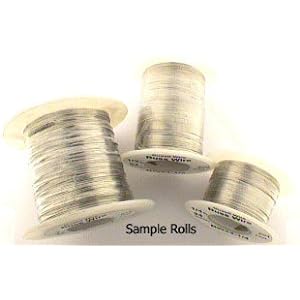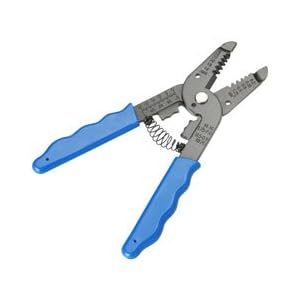Mnemoflame
Junior Member
- Messages
- 80
Cagey said:You might also want to consider some tinned bus wire while you're at it.

It makes it a lot easier to tie the shield of the cable to ground. You just put a wrap on the outer shield of the cable and solder it in place, then you have a nice, thin, manageable piece of wire to tie to whatever you want to tie it to. Keeps you from having to unravel the braid and re-twist it into a wire to get something to solder to a connection.
A quarter-pound roll will last you about 148 lifetimes if all you do is wire guitars. But, it's only $8, and the convenience is worth a helluva lot more than that.
I like your thinking. I read a guide that proposed used something like a paper clip or a dentist's pick to create a hole in the braid and pull the insulated conductor through but that seemed tedious and like to damage the conductor or its insulation. The bus wire is a much more elegant solution and neater.
I got a very small amount of a braided shield cable from Warmoth and it appears to have some kind of coating on it; what is that and is it insulating? Does all braided shield cable have it? I was looking at Stewmac and they offer both the sort of cable I got from Warmoth and some 26 gauge stuff that resembles TV coax (has a black outer insulation over the shield; is there any benefit to getting the latter item or is the aforementioned coating enough to prevent shorts/loops/whathaveyou from unintentional contacts?
Can you recommend/link a good wire stripper for those tiny gauges? The one I have only goes to 22 and that's not sufficient for pickup wires...



